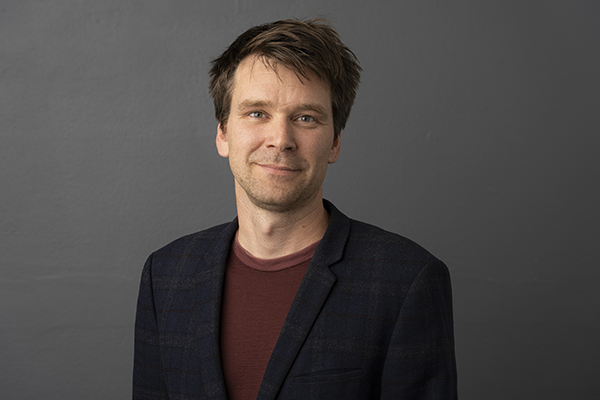Johan Andersen-Ranberg
Research leader

Project title
Power2Life – Acetate enhanced algal biomanufacturing
What is your project about?
Algae play a crucial role in the global ecosystem, and they are used to produce a wide range of ingredients that we use in our daily lives. Unfortunately, algae production is very inefficient, and the yield is low. In Power-to-Life, the goal is to optimize algae, so that they can be cultivated with nutrients created using Power-to-X. With this technology, it is possible to produce algae nutrients from CO2 and renewable energy. The combination of Power-to-X and algae-based production will thus create a unique opportunity to make the production of ingredients essential in the human diet more sustainable.
How did you become interested in your particular field of research?
Back in 2009, I had traveled to Sweden to study at Uppsala University. There, I attended a lecture on microalgae given by a very charismatic, albeit slightly eccentric, professor. One of the key points that I took away was that algae constitute the bottom of the food chain, and much of life on Earth would not exist if it weren't for algae. Using energy from the sun, algae convert CO2 into nutrients that support all biological beings on the planet. In the same process, they produce the oxygen we all breathe. Put another way, algae transform "light energy" into "life energy," and with this "life energy," algae transformed the CO2-based atmosphere in the early years of Earth. It's fascinating, that such a small biological organism has had such a crucial impact on life here on Earth.
What are the scientific challenges and perspectives in your project?
Algae can be tough nuts to crack as they thrive in the harsh conditions found in our oceans. Life there has made them resistant to most external influences. In our work, we aim to introduce new traits into our algae, but due to their resilience, the algae may unfortunately be unwilling to accept the traits we want to add. One of the challenges is thus to develop techniques, that make it possible to continuously improve the algae's capacity to absorb nutrients from Power-to-X. It will be crucial to find the right individuals, who can drive the activities in the Power-To-Life project forward.
What is your estimate of the impact, which your project may have to society in the long term?
The efficient utilization of Power-To-Life nutrients based on the effective conversion of CO2 has tremendous potential that could transform the way bioproduction is carried out in Denmark. Bioproduction is a cornerstone of Danish industry, with products from major players such as Novo Nordisk, Novozymes, Chr. Hansen, and a myriad of startup companies working with bioproduction. Introducing traits in algae that enable Power-To-X-based bioproduction will generate new knowledge, allowing the incorporation of these traits into a wide range of other organisms used in the Danish biotechnological industry. This will integrate Power-To-X into the Danish biotech industry and reduce the reliance on sugar, which is increasingly impacting global biodiversity due to sugarcane plantations replacing tropic rain forest.
Which impact do you expect the Sapere Aude programme will have on your career as a researcher?
To conduct groundbreaking research, it is crucial to be able to attract the best talents. The funding that comes with being part of the Sapere Aude programme makes it possible to recruit the top students and researchers to develop algae for the bioproduction systems of the future. Working with these talents will be crucial for my research career and the results that our research group can achieve. At the same time, the skilled individuals who become part of Power-to-Life will become the future algae researchers with the abilities to make fundamental scientific discoveries that enhance our understanding of how algae impact the planet and our global ecosystem. The Sapere Aude project will also enable us to explore some of the applied aspects of algae research. Talents involved in this work will become the future entrepreneurs who will establish the startups that will build the infrastructure for algae-based bioproduction in Denmark.
Background and personal life
I am married and the father of two girls and one boy aged 3, 5, and 7. In addition to my research at the university, I am an entrepreneur and co-founder of the company TriptoBIO, which produces ingredients for contraceptive rat control. You can read more about the story of how TriptoBIO and I came to work on this sex-related topic in TIME magazine.
Throughout my research career, I have been involved in science communication. In 2015, I won the PhD cup, and since then, I have contributed to broadcasts such as 'Hjernekassen' and '24 Questions for the Professor,' where you can learn more about my algae research.
View all research leaders here
Research institution
University of Copenhagen
Research field
Algae molecular biology
City of your current residence
Copenhagen
High school
Svendborg Gymnasium
